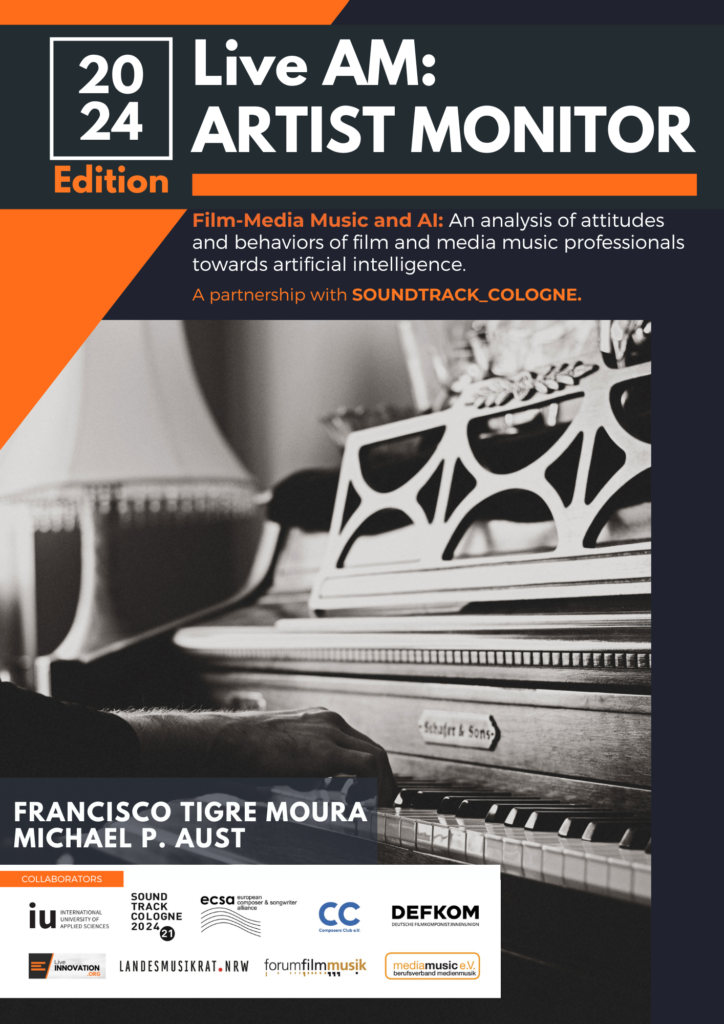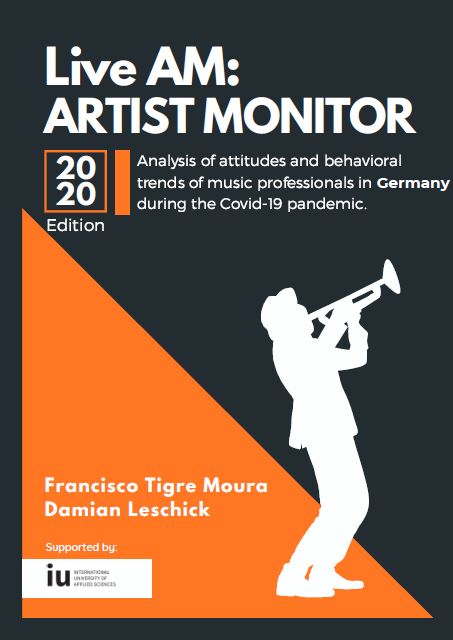The Live AM: Artist Monitor research initiative aims to analyze perceptions and behavioral trends of musicians and music professionals across relevant markets. The purpose is to provide a valuable contribution, through descriptive data, to the music industry and its various stakeholders, academics, the media and music fans.
The focus of investigation lies on three core topics: music, marketing and technology.
We wish to understand perceptions and behavioral patterns towards topics which are relevant for the industry and society. The music industry has faced enormous challenges and so has society. Musicians have a powerful platform for change, thus understanding their perceptions are pivotal for effective change.
Finally, and importantly, the Live AM: Artist Monitor aims to generate outcomes that can support managerial actions and decisions in the music industry. This way, we believe we will contribute to a more sustainable industry for musicians, successful managerial decisions by all stakeholders involved and a more harmonious society.














